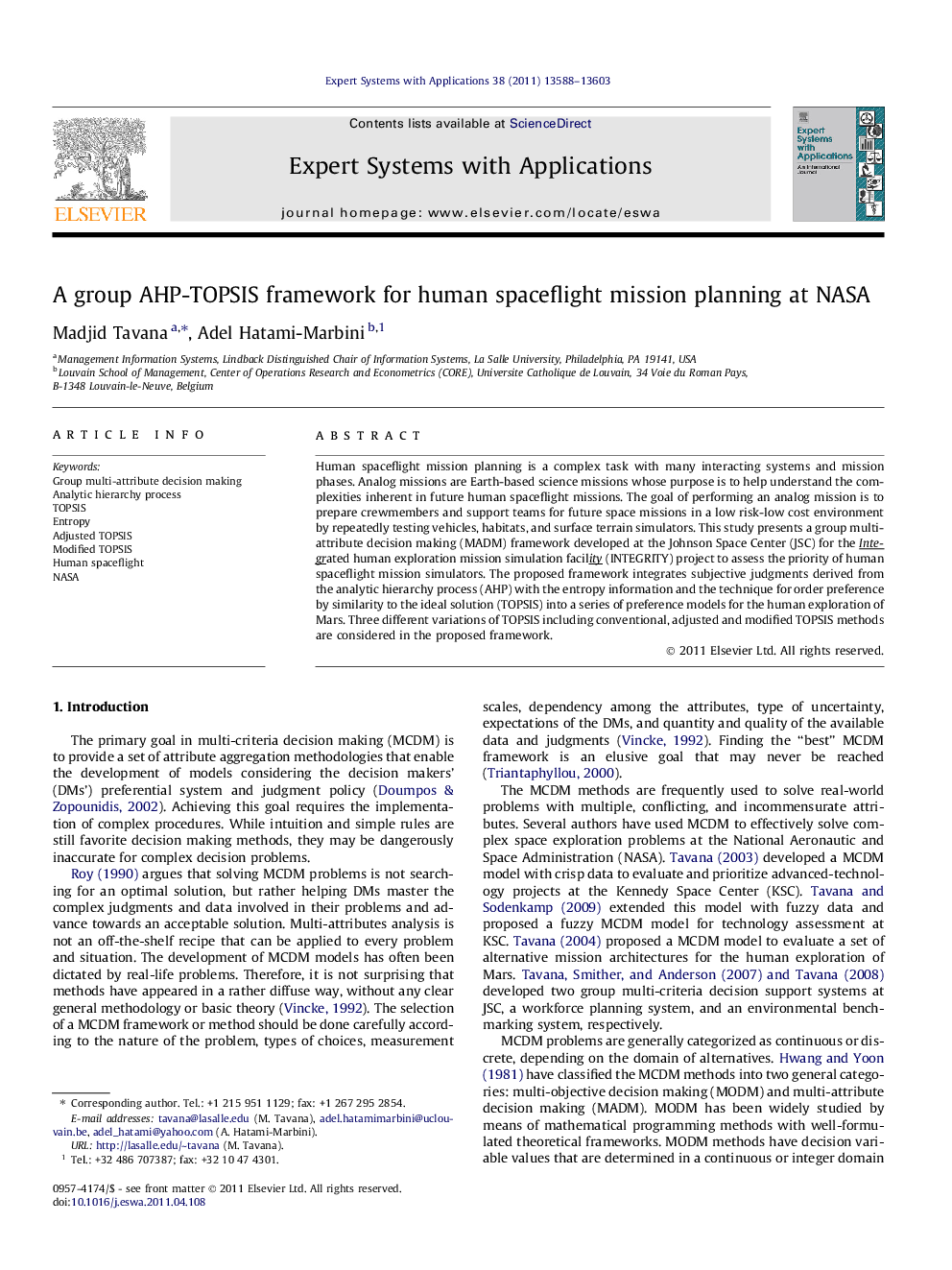| Article ID | Journal | Published Year | Pages | File Type |
|---|---|---|---|---|
| 385360 | Expert Systems with Applications | 2011 | 16 Pages |
Human spaceflight mission planning is a complex task with many interacting systems and mission phases. Analog missions are Earth-based science missions whose purpose is to help understand the complexities inherent in future human spaceflight missions. The goal of performing an analog mission is to prepare crewmembers and support teams for future space missions in a low risk-low cost environment by repeatedly testing vehicles, habitats, and surface terrain simulators. This study presents a group multi-attribute decision making (MADM) framework developed at the Johnson Space Center (JSC) for the Integrated human exploration mission simulation facility (INTEGRITY) project to assess the priority of human spaceflight mission simulators. The proposed framework integrates subjective judgments derived from the analytic hierarchy process (AHP) with the entropy information and the technique for order preference by similarity to the ideal solution (TOPSIS) into a series of preference models for the human exploration of Mars. Three different variations of TOPSIS including conventional, adjusted and modified TOPSIS methods are considered in the proposed framework.
► A generic framework is proposed to evaluate a number of decision alternatives. ► The information requirements are stratified into hierarchies. ► The analytical procedures decompose complex problems into manageable steps. ► The built-in inconsistency checking identifies discrepancies in judgments. ► The framework is applicable to a wide range of real-world decision making problems.
